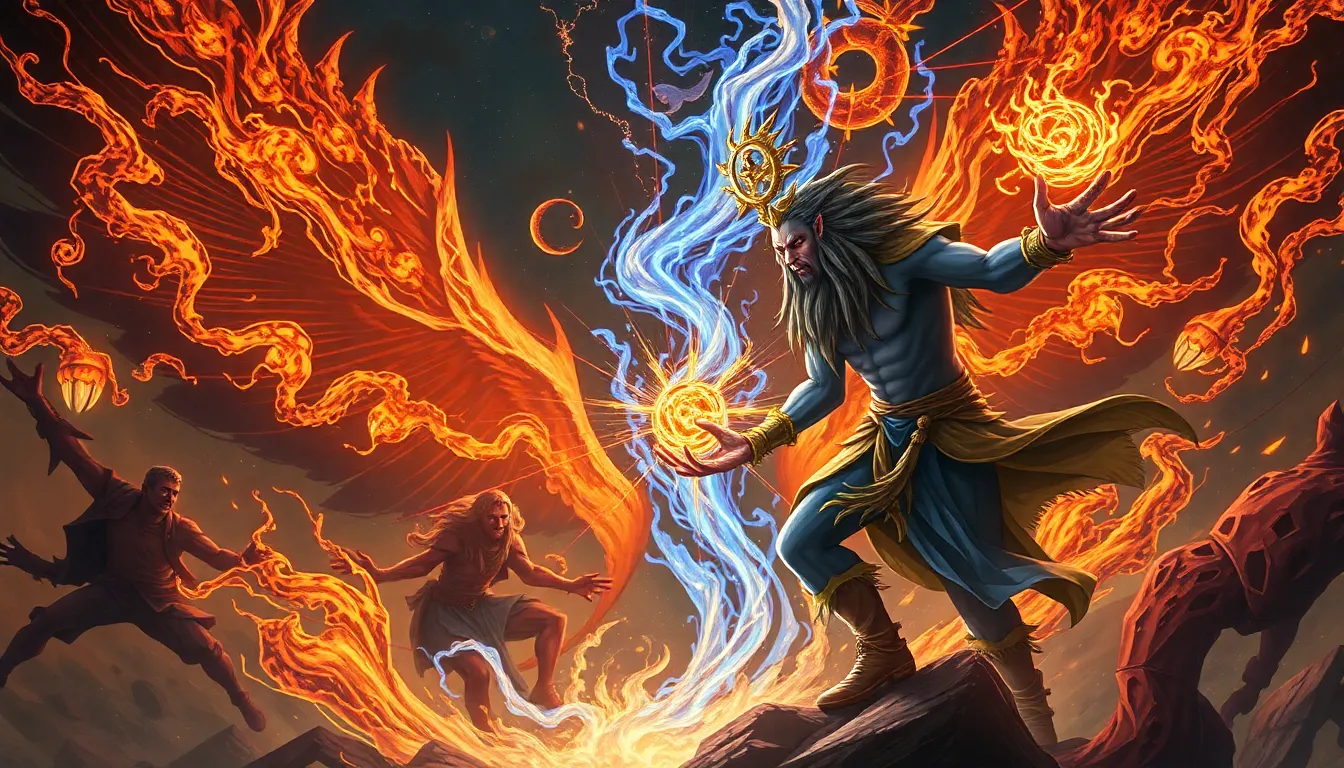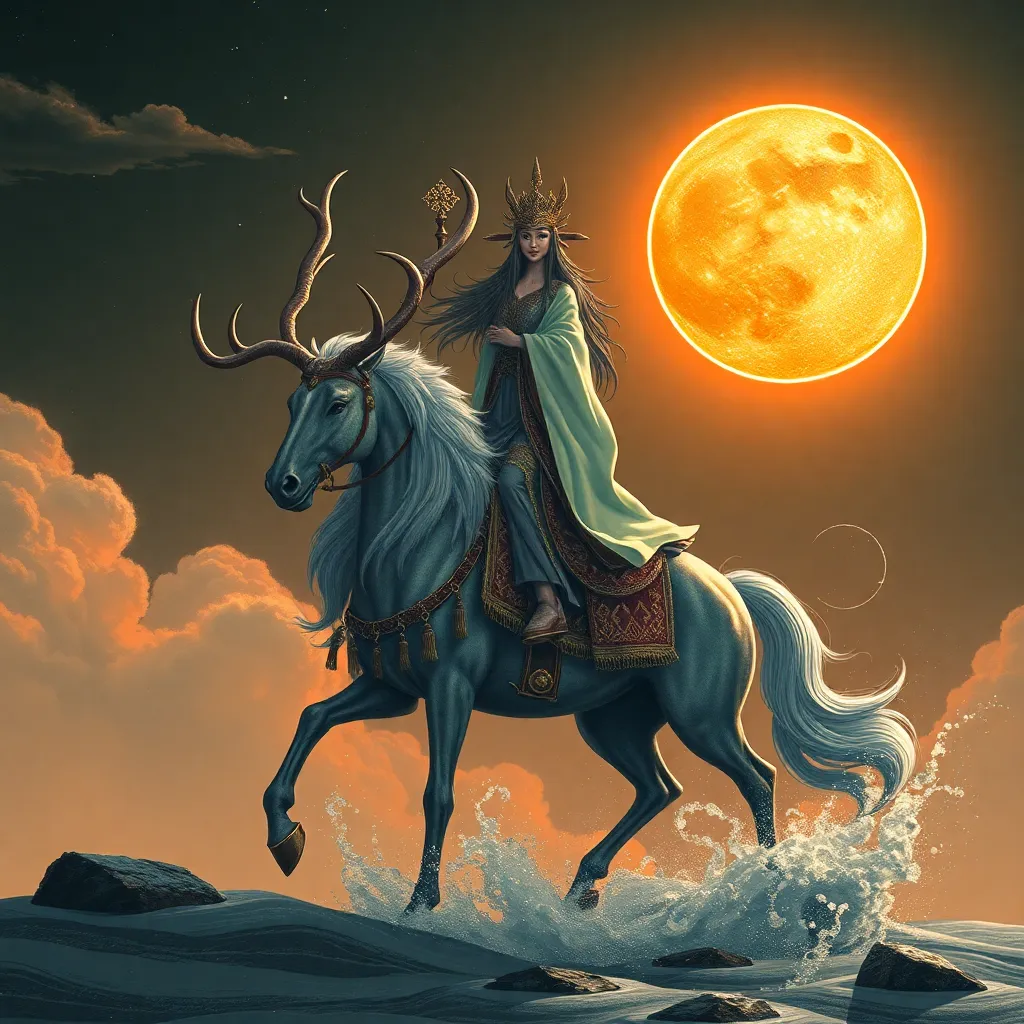Ancient Deities in Modern Culture: Their Surprising Influence
I. Introduction
Ancient deities, often representing powerful forces of nature, human emotions, and societal values, have played a significant role in shaping the cultures and beliefs of civilizations throughout history. These gods and goddesses were not merely objects of worship; they embodied the hopes, fears, and moral frameworks of their followers. Their historical significance extends beyond their original contexts, as they continue to influence modern culture in various forms.
The purpose of this article is to explore the surprising influence of ancient deities in contemporary society, examining how these timeless figures resonate across literature, film, art, spirituality, politics, and social media.
II. The Rebirth of Mythology: Why Ancient Deities Resonate Today
The resurgence of interest in ancient deities can be attributed to several factors:
- The psychological appeal of myths: Myths provide a framework for understanding complex human experiences and emotions. They offer explanations for existence, morality, and the natural world, allowing individuals to connect with something greater than themselves.
- Connection to human experience and emotions: Ancient myths often center around universal themes such as love, betrayal, heroism, and tragedy. This relatability makes them timeless, allowing modern audiences to see their own struggles reflected in these ancient stories.
- Cultural revival and interest in spirituality: In an increasingly secular world, many people are turning to ancient spiritual practices and beliefs for guidance and meaning, leading to a renewed interest in the deities of the past.
III. Ancient Deities in Literature and Storytelling
Literature has long served as a vessel for the exploration and reinterpretation of ancient deities:
- Influences in modern novels and poetry: Many contemporary authors draw inspiration from ancient myths, weaving them into their narratives. For instance, Neil Gaiman’s “American Gods” juxtaposes ancient mythological figures with modern American culture.
- Depictions in graphic novels and comic books: Graphic novels like “Sandman,” also by Neil Gaiman, and “Wonder Woman,” showcase ancient deities in new contexts, often reimagining them for a contemporary audience.
- The role of ancient myths in contemporary storytelling: Storytelling mediums continue to leverage ancient narratives, creating a bridge between past and present that captivates audiences.
IV. Ancient Deities in Film and Television
Film and television have also embraced ancient deities, incorporating them into popular narratives:
- Popular films and shows featuring ancient gods: Movies like “Clash of the Titans,” “Thor,” and series like “American Gods” illustrate the allure of ancient mythologies in modern storytelling.
- Analysis of character portrayals and themes: These portrayals often explore themes of power, morality, and identity, reflecting contemporary societal issues through the lens of ancient beliefs.
- The impact of mythology on modern cinematic narratives: Mythological themes enrich narratives, providing depth and complexity that resonate with viewers.
V. Symbolism and Imagery in Art and Fashion
Artists and designers frequently draw from ancient deities for inspiration:
- How ancient deities inspire artists today: Artists like Kehinde Wiley incorporate mythological elements into their work, reinterpreting traditional themes for modern audiences.
- The influence of mythology on fashion trends: Fashion designers often reference ancient motifs, using symbols of deities to convey messages of strength, beauty, and history in their collections.
- Case studies of specific artists and designers: Designers such as Alexander McQueen have famously utilized mythological imagery, creating pieces that evoke the power and mystique of ancient gods.
VI. Religion and Spirituality: The Modern Worship of Ancient Deities
Interestingly, ancient deities are experiencing a revival in modern spirituality:
- The resurgence of polytheistic practices: Many individuals are exploring polytheistic beliefs, seeking to connect with multiple deities and their diverse attributes.
- The blending of ancient beliefs with new age spirituality: Practices such as Wicca and other neo-pagan movements often incorporate ancient deities, merging traditional rituals with contemporary spiritual practices.
- Interviews with practitioners and followers: Insights from those who actively worship ancient deities reveal a deep-seated connection to history and a desire for community and belonging.
VII. The Deities of Ancient Cultures in Contemporary Politics
Ancient deities are not just confined to spiritual realms; they are also invoked in political discourse:
- Symbolic use of ancient deities in political discourse: Politicians and movements often use ancient symbols to convey power, legitimacy, and cultural heritage.
- Case studies: leaders and movements invoking mythology: Various leaders have drawn upon mythological references to bolster their narratives, such as invoking Zeus for strength or Athena for wisdom.
- The implications of using deities in modern political narratives: The use of ancient deities in politics can create a connection to cultural identity but may also lead to misinterpretation and oversimplification of complex beliefs.
VIII. The Role of Social Media in Reviving Ancient Beliefs
Social media has become a powerful tool in the revival and exploration of ancient beliefs:
- Online communities exploring mythology: Platforms like Instagram and TikTok have fostered vibrant communities where enthusiasts share knowledge and resources about ancient deities.
- The impact of memes and digital art on ancient deities: Memes often reinterpret ancient myths in humorous ways, making them accessible and relatable to younger audiences.
- Influencers and their role in promoting ancient stories: Influencers focused on spirituality and mythology help to educate and engage followers, creating a modern dialogue around ancient beliefs.
IX. Criticism and Cultural Appropriation
While the revival of ancient deities is exciting, it is essential to navigate the complexities of cultural appropriation:
- The fine line between appreciation and appropriation: Understanding the difference between honoring a culture and exploiting it is crucial in discussions about ancient deities in modern contexts.
- Debates on representation and authenticity: Conversations around who gets to tell these stories and how they should be told are increasingly relevant in our diverse society.
- Voices from cultural custodians and scholars: Engaging with those who hold cultural knowledge can help ensure that ancient beliefs are represented authentically and respectfully.
X. Conclusion
In summary, ancient deities continue to exert a profound influence on modern culture, shaping literature, film, art, spirituality, politics, and social media. Their ability to resonate with contemporary audiences speaks to the universal themes and emotions they embody.
As society continues to navigate the intersections of ancient beliefs and modern life, there is immense potential for further cultural exploration and understanding. Ultimately, recognizing the significance of these ancient figures allows us to appreciate the rich tapestry of human experience that transcends time and space.



